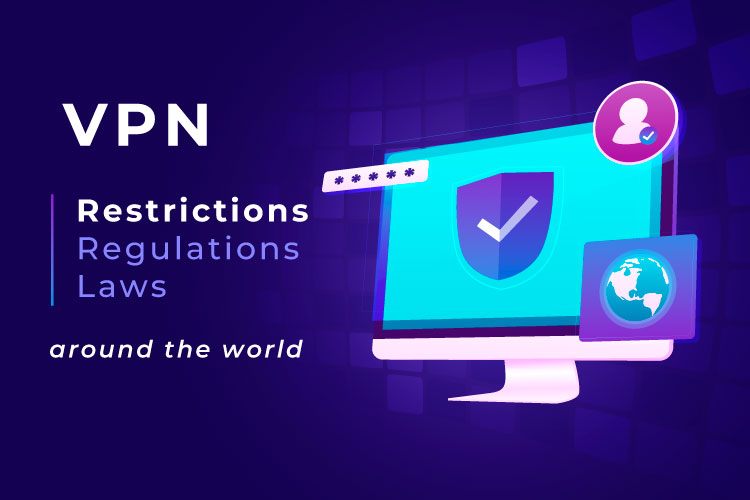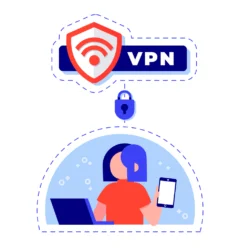VPNs serve several purposes: protecting personal privacy, securing business communications, accessing geo-blocked content, and bypassing internet censorship by creating secure, encrypted connection between your device and the internet. Think of it as a private tunnel that hides your online activities from prying eyes, including your internet service provider, hackers, and sometimes even government surveillance. However, this last capability – circumventing government restrictions – is exactly why some countries have banned or heavily regulated VPN usage.
The global approach to VPN regulation reflects a fundamental tension between individual privacy rights and government control over information flow. While democratic nations typically embrace VPNs as legitimate privacy tools, authoritarian regimes often view them as threats to state authority and social stability. This divide has created a complex patchwork of laws, restrictions, and regulations that vary dramatically from country to country, making it essential for users to understand their local legal environment before using VPN technology.
Table of Contents
- Global Overview: The Regulatory Landscape
- Countries Where VPNs Are Completely Legal
- Countries with Comprehensive VPN Restrictions and Regulations
- Countries with Absolute VPN Prohibitions and Bans
- Special Cases and Evolving VPN Regulations
- VPN Restrictions, Regulations and Legal Considerations
- Regional Trends in VPN Restrictions and Regulations
- Enforcement Reality vs. Legal Theory
- Future Outlook: Trends in VPN Regulation
- Practical Advice for VPN Users Worldwide
- Conclusion
Global Overview: The Regulatory Landscape
VPNs are legal in most countries, like the USA, Canada, Japan, the UK, and most of Europe and Latin America. However, VPNs face restrictions or outright bans in countries such as North Korea, Turkmenistan, Belarus, and Iraq. The regulatory environment for VPNs changes frequently in some regions, making it challenging to track their legal status across all jurisdictions.
The fundamental divide exists between countries that prioritize digital privacy rights and those that maintain strict internet control for political, security, or cultural reasons. Understanding these restrictions, regulations, and laws is crucial for anyone considering VPN use, whether for personal privacy, business security, or accessing global content.
Countries Where VPNs Are Completely Legal
United States
VPNs are legal almost everywhere worldwide, including the USA, with no restrictions on personal or business use. The U.S. government recognizes VPNs as legitimate privacy and security tools. However, using VPNs for illegal activities (like accessing copyrighted content illegally) remains prohibited.
Legal Status: Fully legal
Restrictions: None for legitimate use
Penalties: Only for underlying illegal activities, not VPN use itself
United Kingdom
The UK maintains a liberal approach to VPN usage, treating them as standard privacy tools. VPNs are legal in the UK, and the government has not imposed any restrictions on their use for personal privacy or business security.
Legal Status: Fully legal
Restrictions: None
Business Use: Widely adopted for corporate security
European Union
The European Union requires VPN providers to follow General Data Protection Regulation (GDPR) rules. VPNs are legal throughout the EU, but providers must meet GDPR standards for data security, transparency, and deletion policies. This actually benefits users by ensuring higher privacy standards.
Legal Status: Fully legal across all EU member states
Regulations: GDPR compliance required for providers
User Protection: Enhanced privacy rights under GDPR
Canada and Australia
VPNs are legal in Canada, Australia, New Zealand, with governments recognizing their importance for digital privacy and business security. These countries have no plans to restrict VPN usage.
Legal Status: Fully legal
Government Position: Supportive of digital privacy rights
Business Adoption: Widespread corporate use
Countries with Comprehensive VPN Restrictions and Regulations
China
China operates one of the world’s most restrictive internet environments, known as the “Great Firewall.” VPNs are heavily regulated under China’s comprehensive internet control framework.
Legal Status: Heavily regulated
Key Legislation: China’s 2016 Cybersecurity Law and related regulations
Approved Use: Only government-licensed VPNs for businesses
Personal Use: Technically illegal but enforcement varies
Penalties: Fines and potential legal action for unauthorized use
Russia
Russia has implemented comprehensive internet control legislation that severely restricts VPN usage.
Legal Status: Only state-approved VPNs permitted
Key Legislation:
- Sovereign Internet Law (2019) – mandates internet surveillance and grants government powers to partition Russia from global internet
- 2018 State Duma bill introducing administrative fines for VPN violations
Requirements: Providers must register and block prohibited content
Enforcement: Increasing crackdowns on unauthorized VPN services, with fines up to 700,000 rubles (approximately $9,000) for violations
Penalties: Administrative fines for providers and potential restrictions for users
United Arab Emirates (UAE)
The UAE has some of the strictest VPN regulations globally, backed by specific legal amendments.
Legal Status: Legal for legitimate business use
Key Legislation: 2016 amendment to UAE internet law specifically outlawing VPN use for illegal purposes Prohibited Use: Accessing blocked content (VoIP calls, streaming services)
Penalties: Massive fines between AED 150,000 and AED 500,000 (about $40,000 to $136,000) and potential imprisonment
Risk Level: High enforcement with severe financial penalties
Iran
Iran’s VPN regulations are governed by specific legislation and proposed bills that continue to evolve.
Legal Status: Only government-approved VPNs allowed Key Legislation:
- Current regulations requiring VPN registration with government
- “User Protection Bill” (proposed 2022) – would criminalize production or distribution of VPN and proxy services
Monitoring: State-sanctioned VPNs are heavily monitored
Penalties: Up to $4,000 fine or 2 years imprisonment for unauthorized use
Future Risk: Proposed legislation could make VPN distribution a criminal offense
Enforcement: Actual arrests have been rare, but risks exist
Turkey
Turkey bans VPNs to maintain control over the internet and to prevent citizens from circumventing internet restrictions and government oversight. The country has blocked access to many VPN services and websites.
Legal Status: Restricted and heavily regulated
Government Policy: Active blocking of VPN services
Enforcement: Ongoing efforts to prevent VPN access
Exceptions: Some business use may be permitted
Countries with Absolute VPN Prohibitions and Bans
North Korea
VPNs are illegal in North Korea, as part of the country’s complete control over internet access. Citizens have extremely limited internet access, and VPN use would be considered a serious offense.
Legal Status: Completely banned
Internet Access: Extremely restricted for general population
Penalties: Severe, potentially including imprisonment
Belarus
VPNs are illegal in Belarus, reflecting the government’s approach to controlling information flow and internet access.
Legal Status: Completely banned
Government Policy: Part of broader internet control measures
Enforcement: Active monitoring and blocking
Iraq
VPNs have been banned in Iraq since 2014. Iraq’s government banned VPNs in 2014 to prevent ISIS from exploiting social media and other online platforms.
Legal Status: Completely banned since 2014
Rationale: Originally implemented for national security reasons
Current Status: Ban remains in effect
Turkmenistan
VPNs are illegal in Turkmenistan, consistent with the country’s restrictive approach to internet freedom and digital communications.
Legal Status: Completely banned
Internet Freedom: Extremely limited
Government Control: Comprehensive internet censorship
Special Cases and Evolving VPN Regulations
India: The Data Retention Requirement
India’s VPN regulations changed significantly in 2022 with new data protection requirements.
Legal Status: Legal but with significant privacy implications
Key Legislation: IT Rules 2022 (effective April 2022) – mandates VPN providers to collect and store user data Data Requirements: 5-year user data retention mandate including usernames, phone numbers, and activity logs Impact: Many international VPN providers withdrew from India rather than comply
User Privacy: Significantly compromised for India-based servers
Compliance: Providers must maintain detailed logs of user activities
Egypt: Restricted but Not Illegal
VPNs are not illegal in Egypt, but their use is restricted. The government maintains some control over VPN services while not implementing outright bans.
Legal Status: Legal with restrictions
Government Oversight: Monitoring and some blocking of services
User Experience: Limited but available options
Oman: Encryption Restrictions
Oman explicitly forbids encryption of communications. However, a full implementation of this law would cut off the country from much of the modern internet, creating practical enforcement challenges.
Legal Status: Technically restricted due to encryption bans
Practical Reality: Enforcement challenges due to internet dependency
Risk Level: Uncertain due to unclear implementation
VPN Restrictions, Regulations and Legal Considerations
Understanding the Risks
The punishment for using a VPN illegally depends on where you are. In countries where VPNs are restricted or banned, penalties can range from fines to imprisonment. The severity of the punishment may vary depending on what you were using the VPN for.
Universal Legal Principle
Even in places where VPNs are legal, using them for illegal activities, such as hacking or copyright infringement, is still against the law. Using a VPN for any kind of illegal activity isn’t allowed, and you can and will be prosecuted by law.
Safe Usage Guidelines
Research Local Laws: Always verify current VPN regulations in your country and any countries you plan to visit.
Choose Reputable Providers: Select VPN services with strong privacy policies and no-logs practices.
Respect Local Regulations: Even if you disagree with restrictions, understand the legal risks involved.
Business vs. Personal Use: Some countries distinguish between corporate and personal VPN usage.
Regional Trends in VPN Restrictions and Regulations
Democratic Countries
Generally maintain liberal VPN policies, viewing them as legitimate privacy and security tools. Countries that value users’ privacy and online freedom do not ban VPN use.
Authoritarian Regimes
VPNs are illegal in countries with governments that practice online surveillance or censorship. This is because a powerful VPN helps you bypass those practices by hiding your IP address and online activities from authorities.
Middle Eastern Countries
Often maintain complex regulations that allow VPNs for business use while restricting personal use for accessing blocked content.
Asian Markets
Show mixed approaches, from completely open (Japan, South Korea) to heavily restricted (China) to data-retention requirements (India).
Enforcement Reality vs. Legal Theory
Practical Enforcement Challenges
Many countries that technically restrict VPNs face practical challenges in enforcement:
- Technical Complexity: Blocking all VPN traffic is technically difficult
- Economic Impact: Many businesses require VPNs for operations
- International Relations: Restrictions can affect foreign business relationships
- Evolving Technology: VPN technology continues to advance faster than regulations
Risk Assessment for Users
Low Risk Countries: Democratic nations with strong privacy rights Medium Risk Countries: Countries with unclear or evolving regulations High Risk Countries: Nations with explicit bans and active enforcement
Future Outlook: Trends in VPN Regulation
Increasing Acceptance
More countries are recognizing VPNs as essential business and privacy tools, leading to clearer legal frameworks that protect legitimate use while addressing security concerns.
Regulatory Evolution
Governments are developing more sophisticated approaches that distinguish between legitimate privacy protection and attempts to circumvent local laws.
Technical Arms Race
As VPN technology advances, governments must balance security concerns with practical internet functionality and economic needs.
Practical Advice for VPN Users Worldwide
Before Using a VPN
- Research current laws in your country and any destinations you plan to visit
- Understand local penalties for unauthorized VPN use
- Choose reputable providers with strong privacy practices
- Consider your specific use cases and legal requirements
Safe Usage Practices
- Never use VPNs for illegal activities in any jurisdiction
- Be aware that legal landscapes can change quickly
- Consider consulting legal experts for business use in restricted countries
- Stay informed about regulatory developments in your region
When Traveling
- Research VPN laws in destination countries before traveling
- Consider temporary suspension of VPN use in high-risk countries
- Understand that ignorance of local laws is not a valid defense
- Have alternative communication methods available
Conclusion
The restrictions, regulations, and laws governing VPNs vary dramatically worldwide, reflecting different governmental approaches to internet freedom, privacy rights, and national security concerns. While the majority of countries allow unrestricted VPN use, significant restrictions and comprehensive regulations exist in nations prioritizing state control over digital communications. For users, the key is understanding that VPN legality involves a complex web of restrictions and regulations that are not black and white, with even legally permissible countries often having specific use cases that may be prohibited by particular regulations.
As digital privacy becomes increasingly important and internet censorship continues to evolve, VPN restrictions and regulations will likely remain a dynamic area of international law. Users must stay informed about local restrictions, regulations, and laws, and use these powerful privacy tools responsibly within legal boundaries. The fundamental principle remains constant: while a VPN can help protect your online identity, it cannot and should not be used to circumvent legitimate laws or engage in illegal activities, regardless of the jurisdiction’s specific restrictions and regulations governing VPN usage.







